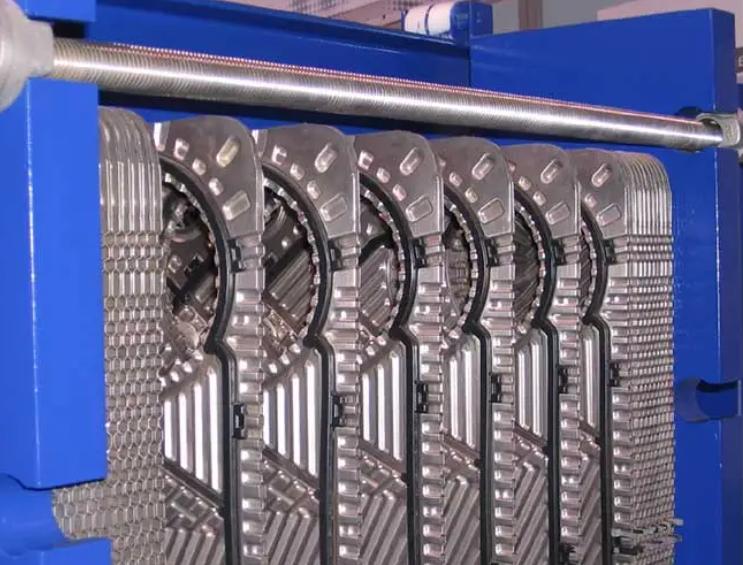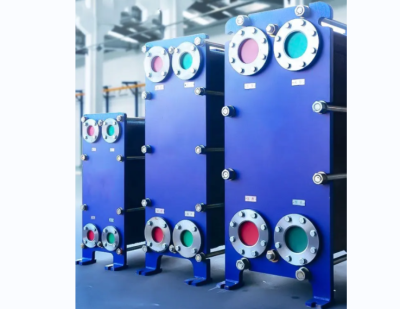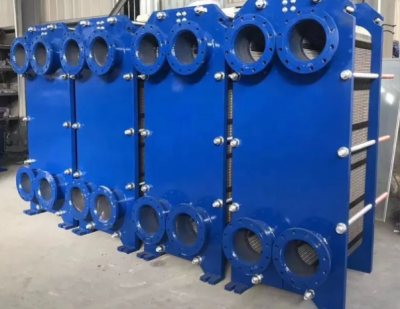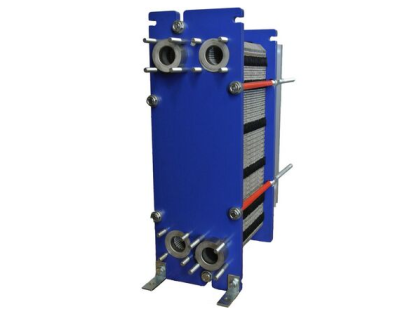Industry news
Plate Heat Exchanger Routine Maintenance Knowledge.
Heat exchanger is one of the widely used equipment in industrial production. For many reasons, heat exchanger equipment and pipeline routes produce a lot of such as coking, dirt, scale, sediment, corrosion products, polymers, bacteria, algae, slime and other dirt. According to the survey, more than 90% of the heat exchanger equipment have different degrees of fouling problems. In order to ensure the normal operation of the heat exchanger for a long time, it is necessary to maintain and overhaul the equipment, and regular testing services are required to protect the normal operation of the plate heat exchanger and reduce the occurrence of accidents.
Precautions:
First, regular inspection and treatment methods:
1. Check whether the heat exchanger leaks, and record and analyse the cause.
a. Seal gasket fracture – replace the new gasket
b. Seal gasket pressure dislocation – re-reset
c. Loose fastening bolts – re-tightening
d. Heat exchanger plate deformation – replace the new plate
2, check whether the heat exchanger heat transfer capacity decline, and record and analyse the reasons.
a. Check the pressure loss – such as no pressure loss, the situation is generally clogging, flow, clogging solution is to open the heat exchanger to clean up and then re-installed for use. The solution for clogging is to open the heat exchanger and clean it before re-installing and using it.
b. Check the temperature change – such as the temperature does not meet the requirements for use, the first step first check the pressure loss as above and solve the problem. The second step to check both sides of the flow and inlet temperature to meet the design requirements and adjusted to the actual requirements. The third step of the above exclusion, requesting the manufacturer site survey.
Heat exchanger follow the law of conservation of energy, just conduct heat and do not do work, so both sides of the energy to match. In addition, the medium is special, easy to clog and easy to scale, so you need to regularly use water flushing, flushing frequency according to the use of conditions such as heat transfer capacity down to can not meet the use of it. And follow the principle of shutdown must be flushed to prevent dry scaling and biological reaction. Maintenance and cleaning points are explained below:
Appearance inspection when disassembled. In order to judge the overall corrosion and deterioration of each part, so immediately after dismantling, check the degree of contamination, water rust adhesion, and sample analysis and experiment as needed.
Cleaning of the heat exchanger. First of all, carefully remove the gasket of each plate sheet, when removing the rubber gasket we will take appropriate protective measures to prevent damage to the gasket. Next, the plates are placed in a specialised cleaning device. Each step of the cleaning process is strictly controlled to ensure that the plates are thoroughly cleaned. Depending on the medium and degree of fouling, we can choose between chemical cleaning, physical cleaning, combined chemical and physical cleaning or CIP on-site automatic cleaning.
DPT test is done on the cleaned plates. Using the colour penetration test method, do a rigorous check and confirm the fault, to be repaired to ensure that the plate like the new factory plate does not exist cracks, corrosion points and other defects. After the colour penetration test, the plate will be thoroughly cleaned again with penetrant, and after cleaning, the plate will be blown dry quickly with compressed air.
Assembly, resetting, testing. After cleaning and inspection or maintenance and repair of the heat exchanger in accordance with the order of assembly, the main points, while the pressure test to check whether it is abnormal, that is, while the assembly, reset.



 English
English  Japanese
Japanese  French
French  Italian
Italian  Persian
Persian  Russian
Russian  Portuguese (Portugal)
Portuguese (Portugal)  Portuguese (Brazil)
Portuguese (Brazil)  Turkish
Turkish  Spanish (Spain)
Spanish (Spain)  Spanish (Mexico)
Spanish (Mexico)  Spanish (Peru)
Spanish (Peru)  Spanish (Argentina)
Spanish (Argentina)  Korean
Korean  Vietnamese
Vietnamese  Indonesian
Indonesian  Malay
Malay 


 Wechat
Wechat